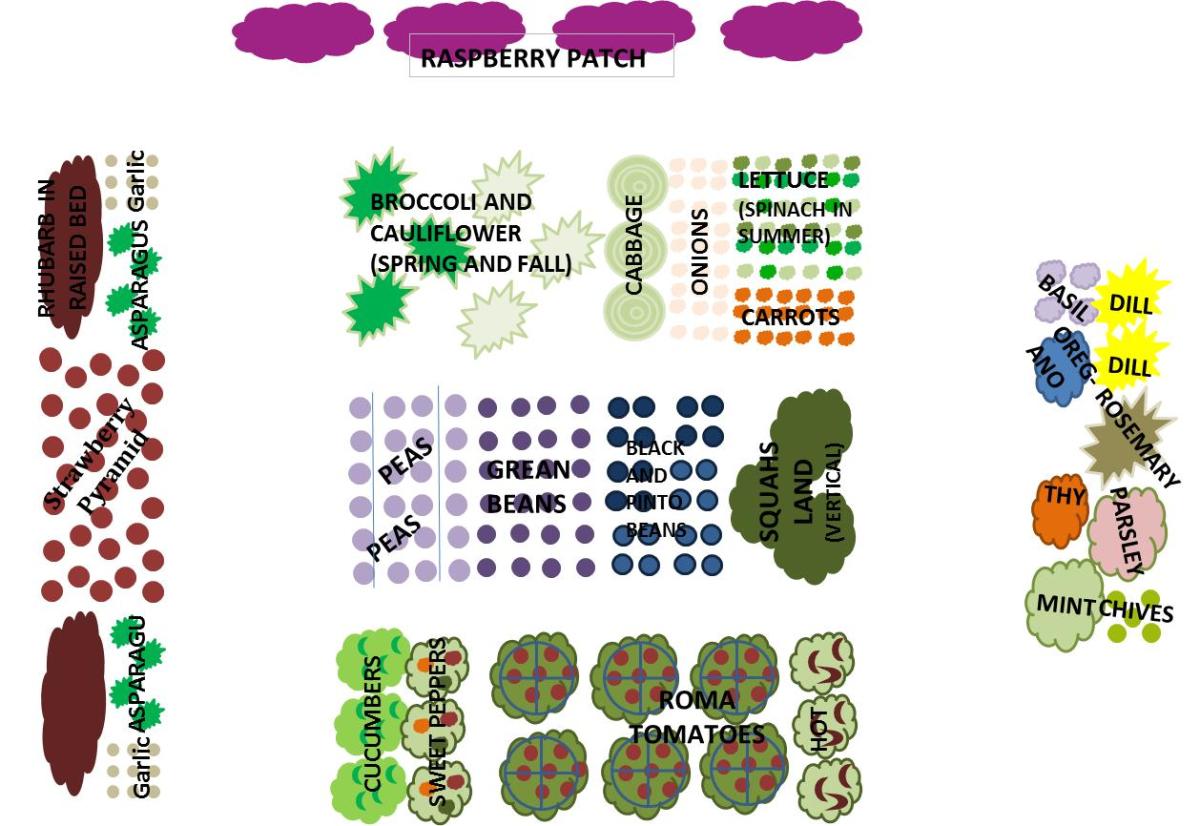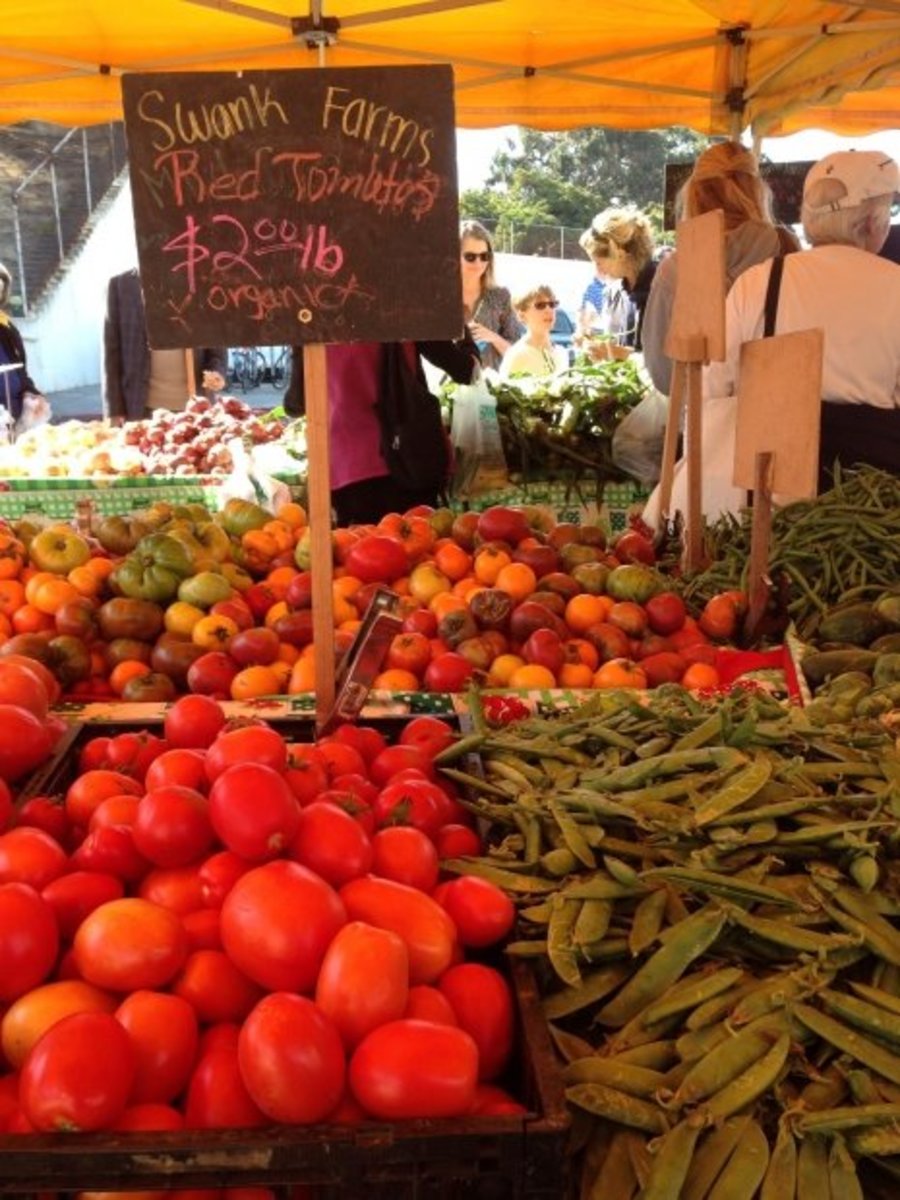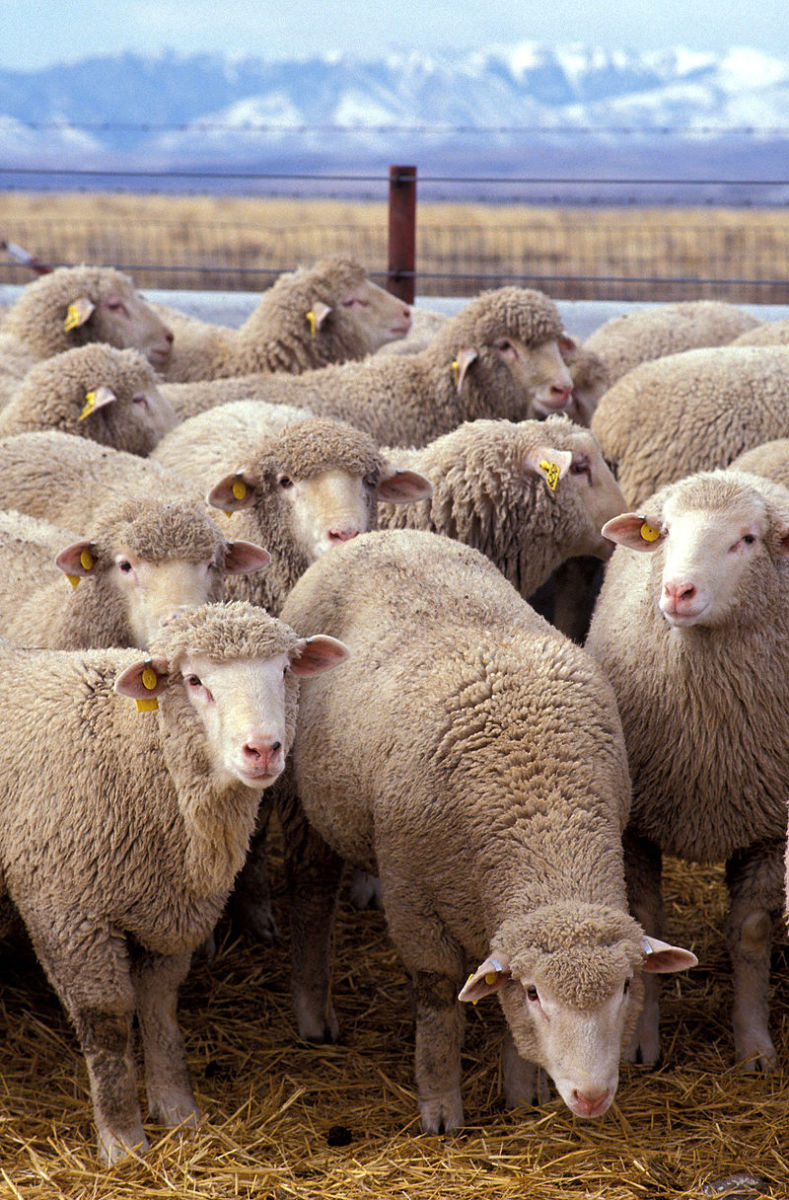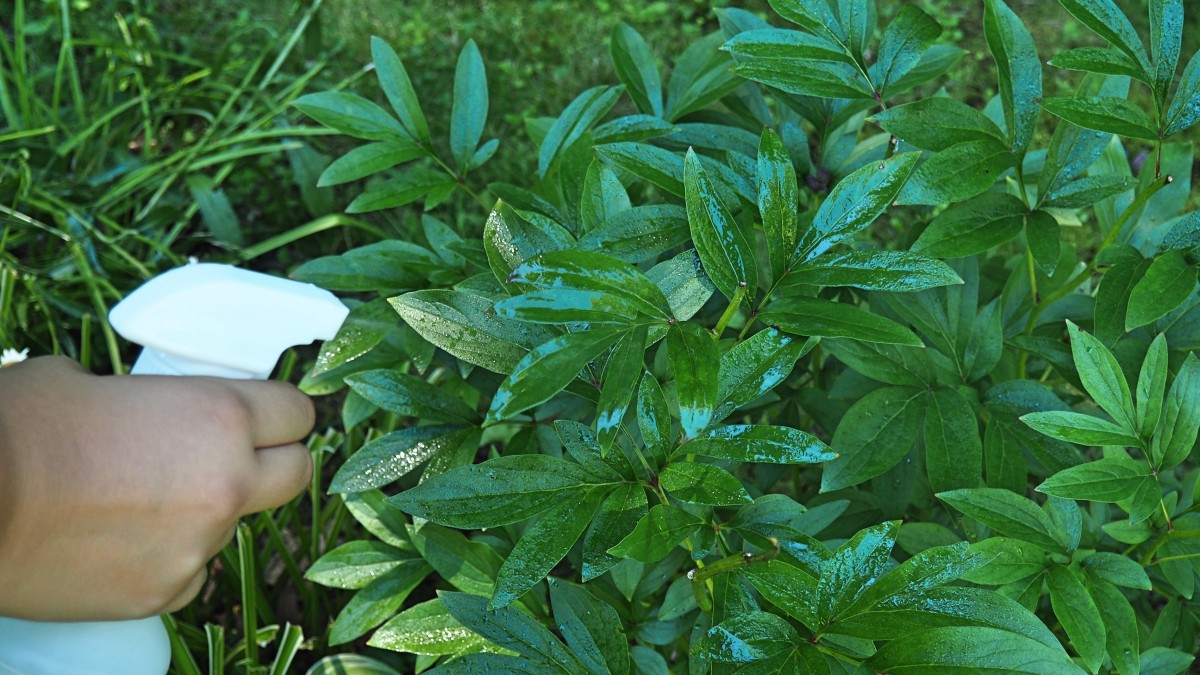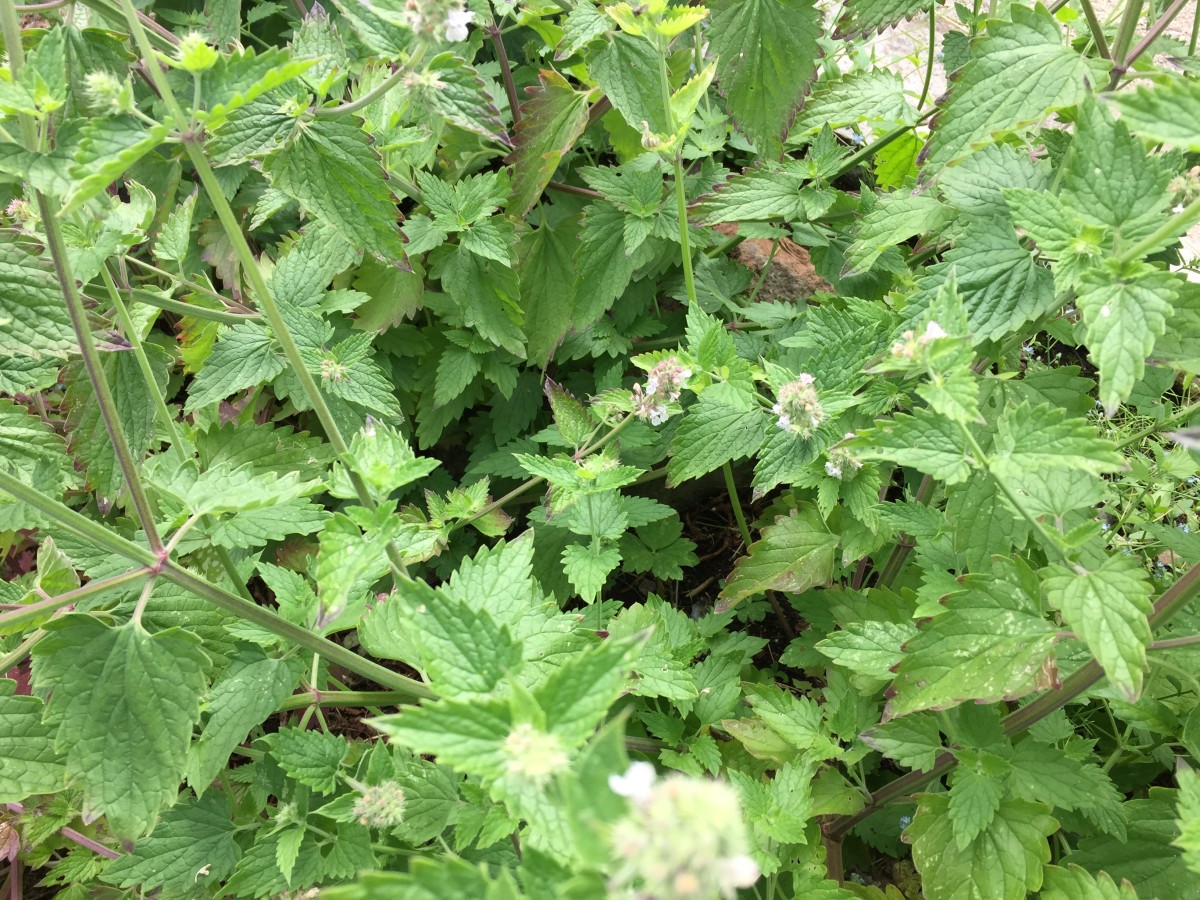Community Projects: CSA Farms and Community Gardens
A DISMAL OUTLOOK
“In the past 40 years, the United States lost more than a million farmers and ranchers. Many of our farmers are aging. Today, only nine percent of family farm income comes from farming, and more and more of our farmers are looking elsewhere for their primary source of income.:
Tom Vilsack
A harsh reality to be sure, but a reality nevertheless! The family farm is disappearing in the United States. There are economic forces in play that are making it nearly impossible for a family with several hundred acres to make a living today. Mega-corporations like Monsanto are now the farmers of today, controlling the farming industry through a system called vertical integration, and in the process controlling prices for the American consumer.
Gone are the days when 85% of this country’s citizens were involved in farming; now that figure is closer to 2.5% and shrinking. The average citizen goes to the supermarket, looks at the prices of corn and wheat products, and wonders how this could be possible, and when will prices return to those of yesteryear. Not only that, but there is growing alarm over the use of pesticides and engineered seeds, so that no one is quite certain what it is that they are actually eating.
We are living in a time when corn barely resembles the corn of fifty years ago; same goes for apples, tomatoes, onions, watermelon, and on and on down the list.
So what can be done? A harrowing question for sure, for in a free enterprise system of economics, there is no stopping this trend. All that is left to do is find alternatives, and that is the focus of this article. Today we will take a close look at two such alternatives, the community garden and the CSA, or Community Supported Agriculture.
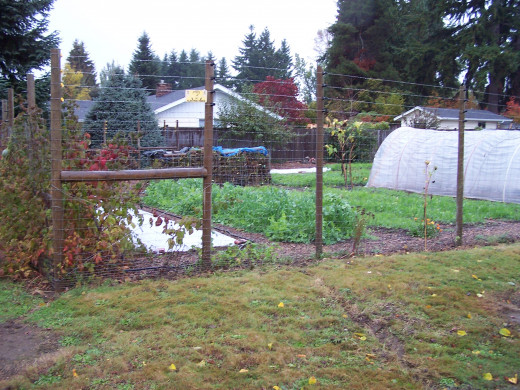
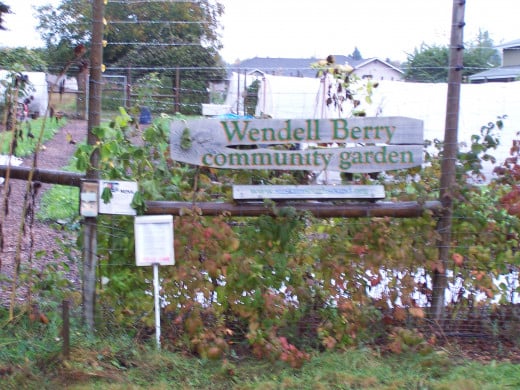
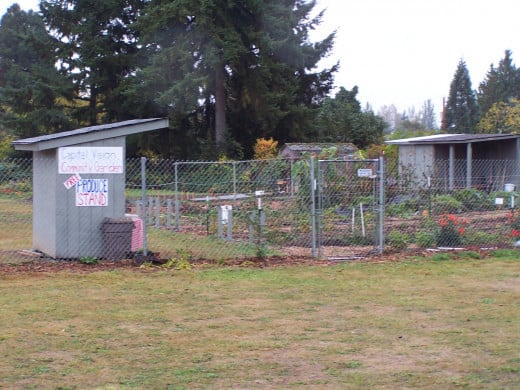
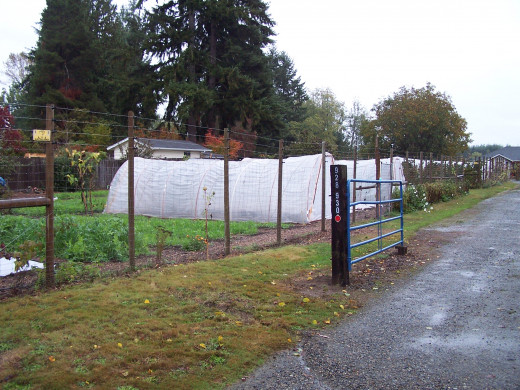
COMMUNITY GARDENS
Community gardens are springing up all over the United States. One such garden is the Wendell Berry Community Garden in Olympia, Washington, established in May of 2009. It is named after novelist, essayist, poet and farmer Wendell Barry, who for over forty years has been reminding people that eating is a political act, and that how we treat the soil and how we produce our food is a reflection of our values. He also believes that “it is only by reconstructing our agricultural system and communities from the soil up that we might hope to achieve a sustainable future and a more caring and peaceful society.”
Unlike many community gardens that divide the land into small parcels to be planted and tended by community members, the Wendell Berry garden is a collective effort with collective management. The entire garden, which you can see in the accompanying pictures, is managed by a collective of people who jointly share responsibility for planning, tending and enjoying the bounty.
All compost and organic material needed for ongoing soil health is produced at the garden. Seeds are saved from the crops so that new seeds are always available, and select crop varieties that are best adapted to the Olympia microclimate are planted. There is also a habitat for pollinators, and honeybees and mason bees are raised, thus raising the pollination rate for not only the community garden but the rest of the neighborhood as well.
This particular community garden has raised, since 2009, over 12,000 pounds of organic food for collective members, neighbors, and the Thurston County Food Bank. In addition, workshops and demonstrations are held regularly to showcase the potential for raising food in an urban area using sustainable organic methods of production.
There are five such community gardens in the Olympia city limits, and plans for several more are in the early stages.
Are these community gardens possible in any urban environment? Most certainly, but it requires a forward-thinking and progressive city government that is willing to think outside the conventional box. The possibilities are practically endless, but it takes leadership and vision to get it done. One can only imagine if this theory were practiced in Detroit, where entire neighborhoods were recently bulldozed.
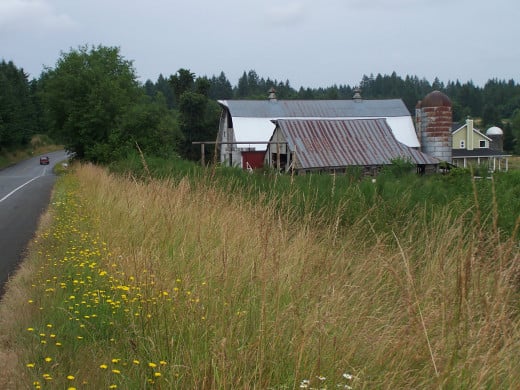
A CSA website
- FairShare CSA Coalition
The latest news on CSA farms
COMMUNITY SUPPORTED AGRICULTURE
Although many citizens have not heard of CSA, it is not a new movement. It began in the early 1960’s, and currently, in the United States, there are close to 13,000 CSA farms in operation, the largest of which is Farm Fresh To You in Capay Valley, California.
The CSA concept began in Germany, Switzerland and Japan; it was a direct response to concerns about the safety of food production and what was seen at the time as excessive urbanization of agricultural land. The early CSA farms consisted of consumers and farmers forming cooperative partnerships to fund the entire farming operation of a farm.
Think of the word “commune” minus the living accommodations and you will have some concept of how a CSA farm operates. Most often the entire cost of the farm, including paying a farmer, is absorbed by community members. In return, they receive pre-agreed upon amounts of available crops. It is based upon the idea of shared risk and reward; individuals and families do not pay for a specified number of pounds of produce but rather pay to support the farm and then receive weekly allotments of the seasonable bounty.
The advantages of this system are many, most notably:
· Financial stability since the farm does not rely on the market vagaries
· Lower cost since transportation of goods is not needed
· Guaranteed quality food, free of pesticides and other questionable growing practices
The types of organizational structures vary across the nation. The most common are:
· Those farms dedicated entirely to CSA members
· Those farms that also sell produce through farmers’ markets or farm stands
· Social structures involving a number of farms and/or farmers, thus increasing the harvest
· Some farms actually sell shares to community members not directly involved in the farming process.
As the environmental movement continues to gain momentum, and as more and more consumers become aware of corporate farming and the dangers that are inherent in that farming, it is expected that more CSA farms will begin operations. The continued success of the existing CSA farms is certainly a positive sign that this system can and does work.
Great information by Paul
- Dairy Farming in Wisconsin: Part 2 - Milking a Herd of Cows
Dairy farming in Wisconsin is rapidly changing. Gone are the days when farmers milked their cows by hand or by the vacuum bucket milking system. The milking pipeline system has now evolved into milking parlours used by all large dairy farmers. From m
Does Your Community Have Community Gardens and/or CSA Farms?
Cold, hard facts about farming in America
- Farming in America
A look at one family, one farm, and the state of farming in America.
THE FUTURE, ALTHOUGH DIM, IS FAR FROM HOPELESS
The success of community gardens and community supported agriculture depends almost entirely on a cultural shift in thinking. Citizens must continue the movement towards buying locally and buying organically. As that demand increases, these alternatives to farming will increase. It all depends on the individual consumers, and how willing they are to break the accepted norm and move out of their comfort zone. Instead of going to the corporate grocery store for produce and/or meat, they need to go to an organic produce market or meat market. When that happens, the true laws of supply and demand will once again be a part of the farming industry, and consumers will be eating food that is free of chemicals.
For many in this country, this is a matter of awareness. Many do not know the levels of pesticides that are used in the produce that they eat. Many are not aware that family farms are disappearing, nor do they understand that the price of their produce and meat is controlled by corporation board members who are about as far removed from farming as one can be.
It is time in this country to spread the word. It is time to leave our comfort zone and buy locally and organically. It is time, quite frankly, to start acting like the America of old and take control of our well-being rather than rely on corporate and governmental interests that could care less about our well-being. We owe it to ourselves, and we owe it to our children! Make the switch now! Support local farming before it completely disappears.
2012 William D. Holland (aka billybuc)



